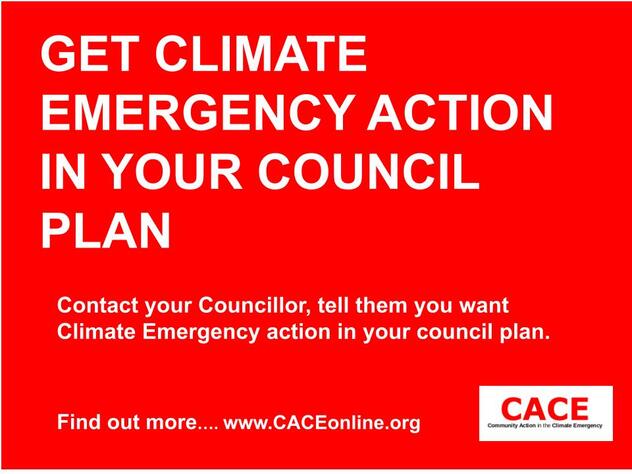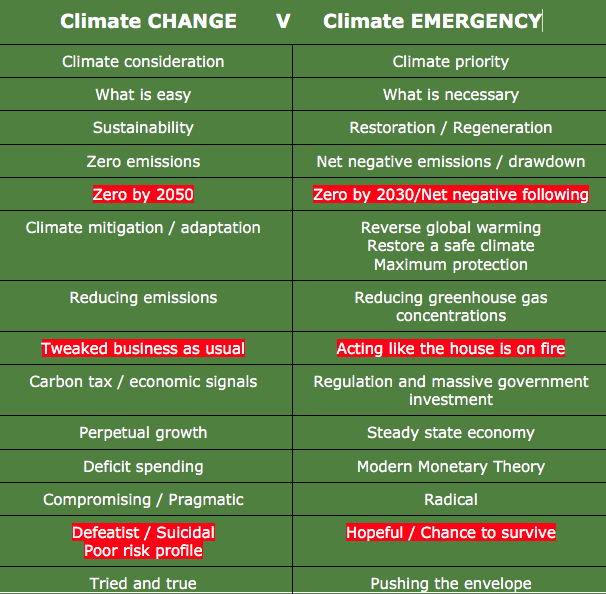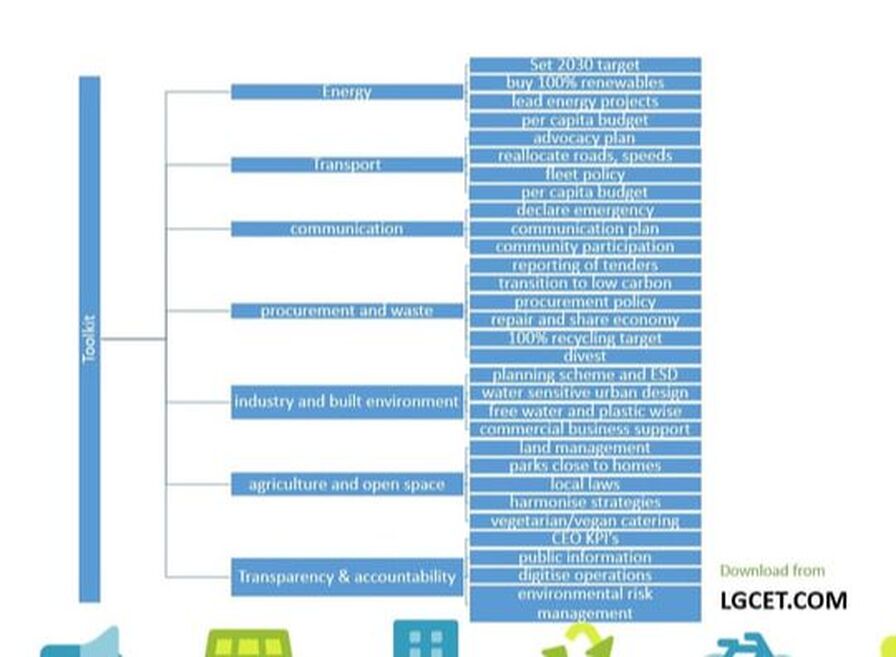In this section
- Why councils?
- Email you Councillor
- Resources
Why Councils?
Councils have led and are still leading the world on Climate Change
It was one council, Darebin (Vic, Australia), in 2016 that was the first government in the world to formally recognise we face a climate emergency. Now over 1800 government of all levels, including the United Nations, have formally recognised we face a climate emergency.
Councils have also led on many climate related projects, including urban reforestation, storm water management, biochar production, home retrofits and solar panel installation.
Given the huge task of getting to negative emissions and cooling the planet, the options for councils to take action is almost limitless. See Dale Martins Local Government Climate Emergency Tool Kit for for great ideas.
Vic councils are currently setting agendas for the next four years now!
Over February and March councils are engaging with their communities and developing their council plans, which will set their major priorities and projects for the next four years.
The most common criticism we hear from councillors is they don't hear demands from the community relating to the climate emergency. If they don't hear from you and your community they will conclude that the climate emergency isn't important to the people in their ward. Councillors need to hear your voice.
You can tell them what they should focus on
Your councillors need to understand how they can prioritise the climate emergency in their four-year plans. You could tell them to declare a climate emergency if they have not done so already, specific projects that help and resonate with your community, or to go into full emergency mode. (see below for more detail on what to say).
It was one council, Darebin (Vic, Australia), in 2016 that was the first government in the world to formally recognise we face a climate emergency. Now over 1800 government of all levels, including the United Nations, have formally recognised we face a climate emergency.
Councils have also led on many climate related projects, including urban reforestation, storm water management, biochar production, home retrofits and solar panel installation.
Given the huge task of getting to negative emissions and cooling the planet, the options for councils to take action is almost limitless. See Dale Martins Local Government Climate Emergency Tool Kit for for great ideas.
Vic councils are currently setting agendas for the next four years now!
Over February and March councils are engaging with their communities and developing their council plans, which will set their major priorities and projects for the next four years.
The most common criticism we hear from councillors is they don't hear demands from the community relating to the climate emergency. If they don't hear from you and your community they will conclude that the climate emergency isn't important to the people in their ward. Councillors need to hear your voice.
You can tell them what they should focus on
Your councillors need to understand how they can prioritise the climate emergency in their four-year plans. You could tell them to declare a climate emergency if they have not done so already, specific projects that help and resonate with your community, or to go into full emergency mode. (see below for more detail on what to say).
Email your Councillor
CACE has emailed all VIC councillors
CACE has emailed every newly elected councillor with a checklist of ideas for how to prioritise climate in their council plan. Read the full email with materials for councils that have previously passed motions acknowledging the climate emergency.
The following materials were attached and linked in these emails:
Emailing your councillors is the most important action you can take this February / March
Google you local councillor, find their email address and demand the following:
Suggested Email Template
CACE does not support proforma letters instead we provide some dot points (see below) plus the above information so you can develop your own email with you own voice.
Proforma letters are often ignored or even resented as they can be seen as the product of a lobby group rather than genuine concern from the community.
Email from a resident or group
Consider changing the order.
You might consider adding:
CACE has emailed every newly elected councillor with a checklist of ideas for how to prioritise climate in their council plan. Read the full email with materials for councils that have previously passed motions acknowledging the climate emergency.
The following materials were attached and linked in these emails:
- CACE's Emergency Mode 10-point Checklist
- A Local Government Climate Emergency Toolkit developed by former Moreland Councillor, Dale Martin.
Emailing your councillors is the most important action you can take this February / March
Google you local councillor, find their email address and demand the following:
- That council declare a climate emergency if they have not already done so. You can check this list to see if your council has declared https://www.cedamia.org/global. Suitable responses to common councillor objections to a declaration are captured in this blog post.
- Demand councils that have already declared put a prominent statement about the climate emergency and the council's response on their home / front page of their website (just like they have probably done with COVID).
- Demand council enter a full emergency response. This includes promotion of the issues to their community, significant budgets, and ambitious targets. CACE discusses exactly how council can undertake a full emergency response here.
- Demand council pick a range of projects to lead their response. Send your councillors to the Local Government Climate Emergency Toolkit developed by former Moreland Councillor, Dale Martin to guide their project selection and how to get this approved or take a look at CACE's Post Declaration pages.
- Get as many people as possible to do this using your person social networks or build a community campaign. CACE discusses how you can build a community campaign here.
Suggested Email Template
CACE does not support proforma letters instead we provide some dot points (see below) plus the above information so you can develop your own email with you own voice.
Proforma letters are often ignored or even resented as they can be seen as the product of a lobby group rather than genuine concern from the community.
Email from a resident or group
Consider changing the order.
- Connection - Your connection to your council area and community "My name is ...." "I have lived in ...." "Our group" etc
- Concerns - These are your concerns about global warming in your voice
- Demands - State your demands.
- Your council declares a climate emergency. See CACE's motions to declare a climate emergency.
- Your council set strong goals and targets for itself and the community. See CACE's goals and targets for councils.
- Your council develops a new climate emergency plan. See CACE's climate emergency plans for councils
- Your council commits to a number of climate projects. These projects MUST include community mobilisation (education of and encouragement of the community to take action) and any other projects you would like your council to do e.g. Solar Savers, Home retrofits, community gardens, biochar production etc. See CACE's post declaration page or Dale Martin's Local Government Climate Emergency Tool Kit for project ideas.
- Demand your council treat the climate emergency like an emergency and point to your councils response to COVID as an example. For example most Victorian councils still have COVID material dominating the front page of their website and many have committed millions to supporting their communities, while only one council in Victoria has the Climate Emergency featured - (assessed late Jan 2021). See CACE's discussion on how a council would undertake a climate emergency response.
- Demand senior staff undertake some climate emergency training. CACE can provide this for a fee or at no cost for councils with limited budgets.
- Demand your council sets climate emergency goals and targets if they have not already done so.
- Demand your council develops a ambitious Climate Emergency Plan if they have not already done so
- Demand your council includes a number of strong climate emergency projects including community mobilisation.
- Demand your council commits to full emergency mobilisation.
You might consider adding:
- Their values - it is important to try and link the impacts of global warming to things the councillor cares about. If you don't know the default if link to family and children's and their future.
- See communication with your section of the CACE website
- Science - link to a website that explains global warming use one of CACE, NASA etc
- Linking climate change to your community values - how responding to climate change can help / protect / support things you community cares about.
- Legal requirement to act - it might be worth pointing out the councillors now have a legal requirement under Local Government law to act on the climate emergency. See CACE's Bryony Edward's blog post and or the CACE page on the legal issues.
Resources
CACE forums for community and councillors
CACE is following up emails to councillors by running separate webinars for councillors and for community members who want their council to mobilise in the climate emergency.
You can watch our second forum held for councillors here https://www.youtube.com/watch?v=Rhk_fznzslc
Sessions are 45 minutes long and consist of 30 minutes of presentations and 15 minutes of Q&A.
The councillor sessions will be held twice on the following dates:
CACE is following up emails to councillors by running separate webinars for councillors and for community members who want their council to mobilise in the climate emergency.
You can watch our second forum held for councillors here https://www.youtube.com/watch?v=Rhk_fznzslc
Sessions are 45 minutes long and consist of 30 minutes of presentations and 15 minutes of Q&A.
- How bad is the climate emergency? (not included in the community sessions)
- What how to chose projects a council can take on
- How new councillors can get a climate emergency agenda through their council
- Countering common objections from councillors unwilling to act on the climate emergency
- Why councils need to enter a full emergency mode and what this looks like.
The councillor sessions will be held twice on the following dates:
- Feb 10th (Wed), 12 noon - Facebook event, Zoom link
- Feb 11th (Thurs), 7 pm - Facebook event, Zoom link
- Feb 9th (Tues), 6.30pm - Facebook event, Zoom link
- Feb 17th (Wed), 7.30pm - Facebook event, Zoom link
Share our - Facebook promotion
Climate change vs Climate Emergency
The slide appears in our presentations and is included here to help people understand the difference between a climate emergency response and a non climate emergency response. Most councils responses are still working in the left hand column.
Climate Emergency Action for Local Government
Dale Martin's Local Government Climate Emergency Toolkit out lines in detail a huge range of projects and programs councils can undertake on the climate emergency. The tool kit include a 3 star rating systems from weak to best practice. No council in Australia is doing it so there is something for everyone. Below is the slide from Dale's talk which summarises the projects in the tool kit.



